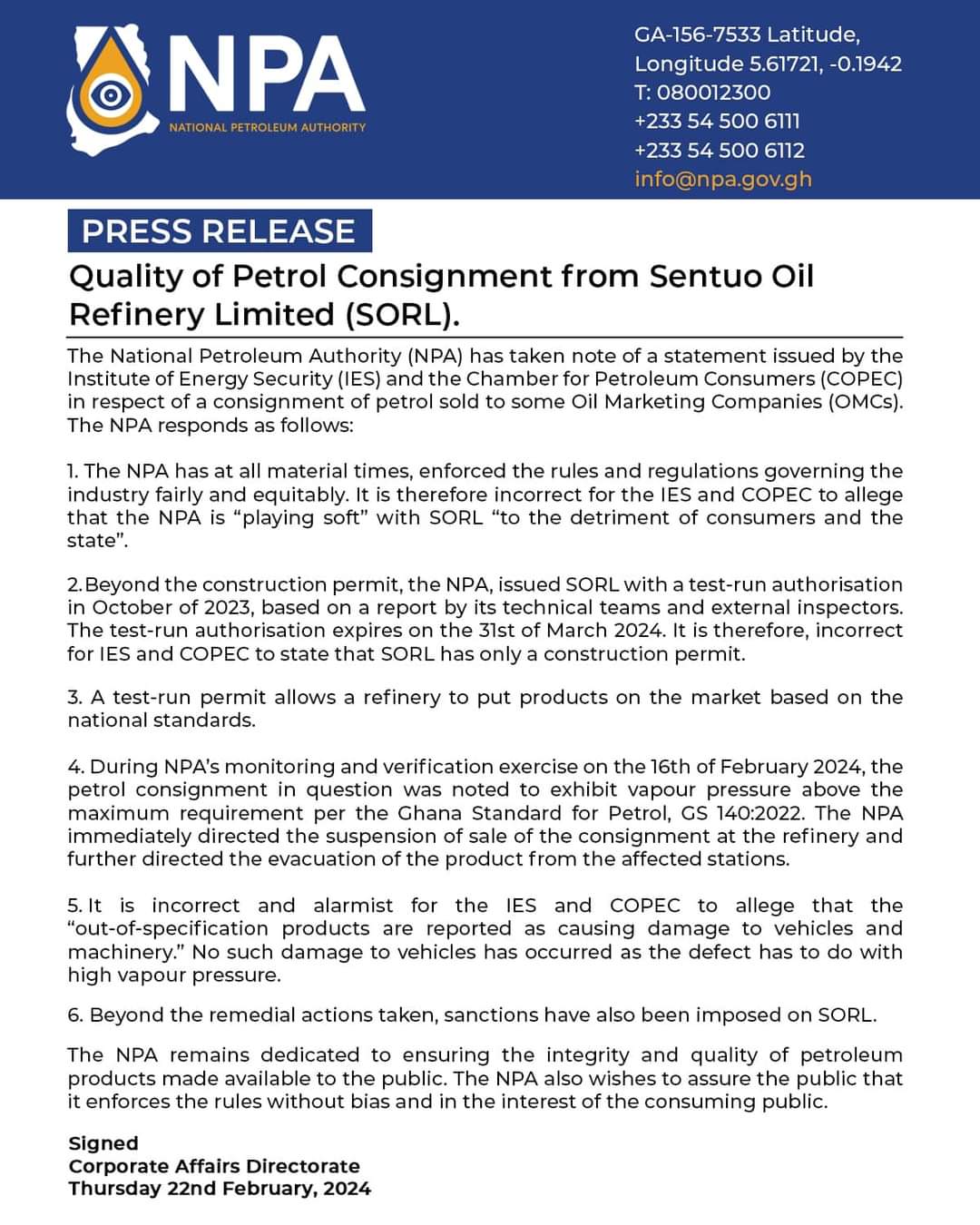
Data from the Bank of Ghana (BoG) suggest petroleum revenues fell by more than half in the year’S first six months (2025), dropping 56 percent year-on-year to US$370.6million.
This development marks a steep decline from the same period of 2024, when receipts stood at US$840.8million.
According to the central bank’s ‘2025 First Half Semi Annual Report’, the slump was driven primarily by a 25.5 percent drop in volume of crude oil lifted by the Ghana Group – from 3.77 million barrels in H1 2024 to just 2.81 million barrels in H1 2025.
Compounding this decline, the average achieved price for crude oil also dropped – from US$84.08 per barrel to US$75.69 over the same period.
This comes on the back of a strong showing for 2024 when the country recorded a 28 percent increase in annual petroleum receipts, reaching US$1.36billion – second-highest in the country’s oil-producing history.
In fact, crude oil production has been on a downward trajectory since 2019 when output peaked at 71.44 million barrels. By the end of 2024, production had dropped to 48.25 million barrels; a 7.4 percent average decline over five years.
In first-half 2025 the situation worsened due to operational disruptions, including a 14-day shutdown of production activities (six days in March and eight in April) which further curtailed output.
The Technical Manager-Public Interest and Accountability Committee (PIAC), Mark Obeng Adu Agyemang, observed that in spite of falling global prices, additional production-related issues this year – including unscheduled shutdowns – undermined output and, by extension, government revenue.
Indeed, the collapse in receipts has reignited concerns over long-term sustainability of the country’s upstream oil sector. It must be noted that no petroleum agreement was signed in 2024 – marking the fifth consecutive year without a new deal. The last agreement was inked in 2018.
Sector watchers and civil society groups, including the Africa Centre for Energy Policy (ACEP), have expressed alarm at this continued drought in exploration. ACEP argues that the lack of fresh investments could cripple future production and expose the economy to heightened revenue volatility.
The Policy Lead for Petroleum and Conventional Energy at ACEP, Kodzo Yaotse, stated that there has been a consistent decline in oil production for some time now. He warned that the sharp decline in revenue will constrain government’s ability to fund critical development initiatives.
The post Editorial: Global oil prices subdued amid concerns of declining local output appeared first on The Business & Financial Times.
Read Full Story


















Facebook
Twitter
Pinterest
Instagram
Google+
YouTube
LinkedIn
RSS